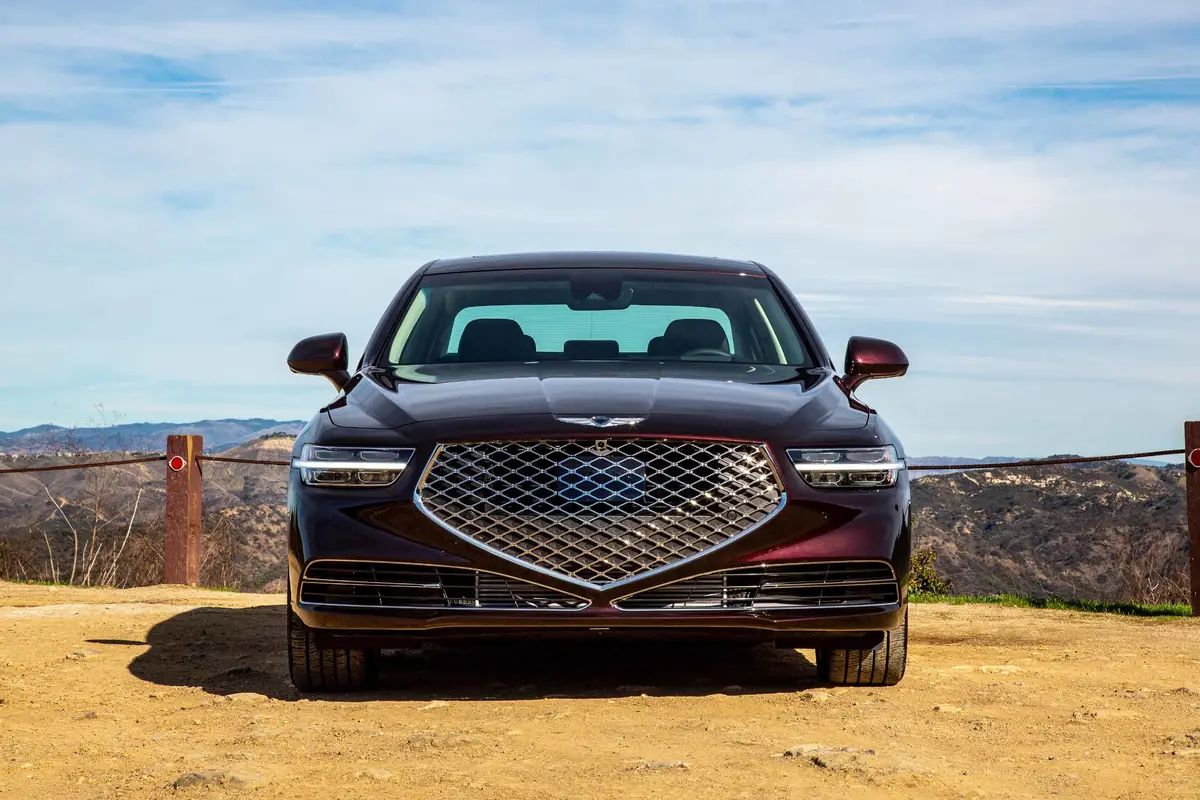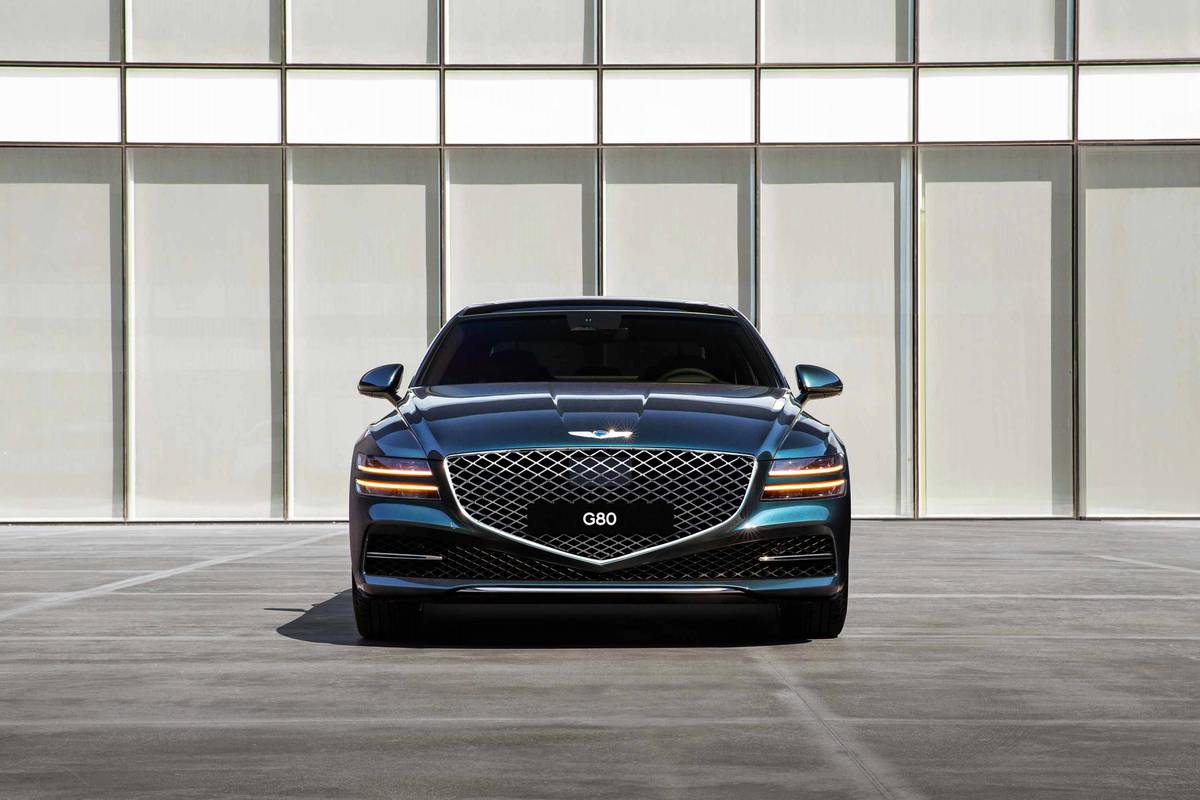How To Make Genesis Cars: A Comprehensive Guide For Enthusiasts
Genesis cars have become a symbol of luxury and innovation in the automotive industry. If you're fascinated by the engineering behind these vehicles, you're in the right place. This article will take you through the intricate process of how Genesis cars are made, from the initial design stages to the final assembly line. Whether you're a car enthusiast or a budding engineer, this guide will provide valuable insights into the world of Genesis automobiles.
As the automotive industry continues to evolve, the demand for high-quality vehicles with advanced technology has never been higher. Genesis, Hyundai Motor Group's premium brand, has positioned itself as a leader in this space. By focusing on cutting-edge design, superior performance, and customer satisfaction, Genesis has carved out a niche in the luxury car market.
In this article, we'll explore the manufacturing process of Genesis cars, highlighting the key steps involved in creating these masterpieces. From the materials used to the rigorous testing procedures, you'll gain a deeper understanding of what makes Genesis cars stand out. So, buckle up and get ready to dive into the world of Genesis automobiles.
Table of Contents
- Genesis Brand Overview
- Genesis Design Process
- Materials Used in Genesis Cars
- Manufacturing Steps
- Quality Control
- Technology and Innovation
- Testing and Certification
- Environmental Impact
- Future of Genesis Cars
- Conclusion
Genesis Brand Overview
Established in 2015, Genesis is Hyundai Motor Group's luxury car brand, aiming to compete with the world's most prestigious automotive manufacturers. The brand's mission is to deliver exceptional quality, advanced technology, and a luxurious driving experience. Genesis has quickly gained recognition for its sleek designs, powerful engines, and cutting-edge safety features.
History of Genesis
The Genesis brand was born out of Hyundai's vision to create a premium car line that could rival established luxury brands like Mercedes-Benz and BMW. The first Genesis model, the G90 (formerly known as the EQ900), was launched in 2016 and set the tone for the brand's future endeavors. Since then, Genesis has expanded its lineup to include sedans, SUVs, and even electric vehicles.
Genesis Design Process
Designing a Genesis car is a meticulous process that involves collaboration between engineers, designers, and marketing experts. The goal is to create vehicles that not only look stunning but also offer superior performance and comfort.
Key Design Elements
- Crest Grille: The signature Crest Grille gives Genesis cars a bold and distinctive appearance.
- Two Lines Design: This design philosophy emphasizes simplicity and elegance, creating a harmonious balance between form and function.
- Interior Luxury: The interiors of Genesis cars are crafted with premium materials, offering a luxurious and comfortable environment for drivers and passengers alike.
Materials Used in Genesis Cars
The quality of materials used in Genesis cars plays a crucial role in their overall performance and durability. From the body panels to the interior components, every material is carefully selected to meet the brand's high standards.
Exterior Materials
- Aluminum alloys for lightweight yet strong body panels.
- High-strength steel for enhanced safety and structural integrity.
- Advanced paint technologies for long-lasting finishes.
Manufacturing Steps
The manufacturing process of Genesis cars is a complex operation that involves several stages, each designed to ensure the highest level of quality and precision.
Assembly Line
- Stamping: Metal sheets are stamped into various shapes to form the car's body panels.
- Welding: The body panels are welded together to create the car's structure.
- Painting: The car is painted using advanced techniques to achieve a flawless finish.
- Final Assembly: All components, including the engine, interior, and electronics, are assembled into the finished vehicle.
Quality Control
Quality control is a critical aspect of Genesis car production. Every vehicle undergoes rigorous inspections and tests to ensure it meets the brand's stringent standards.
Inspection Procedures
From the initial stages of production to the final inspection, every Genesis car is thoroughly checked for defects and inconsistencies. This includes:
- Visual inspections of the exterior and interior.
- Performance tests on the engine and drivetrain.
- Safety checks to ensure compliance with global standards.
Technology and Innovation
Genesis cars are equipped with the latest technology, offering drivers a seamless and enjoyable experience. From advanced infotainment systems to state-of-the-art safety features, Genesis continues to push the boundaries of innovation.
Key Technologies
- Genesis Connected Services: Provides real-time navigation, remote vehicle control, and more.
- Driver Assistance Systems: Includes features like adaptive cruise control, lane-keeping assist, and automatic emergency braking.
- Electric Powertrains: Genesis is investing heavily in electric vehicle technology, with models like the GV60 leading the charge.
Testing and Certification
Before a Genesis car reaches the market, it undergoes extensive testing to ensure it meets all regulatory requirements and customer expectations.
Certification Standards
Genesis adheres to global certification standards, ensuring its vehicles are safe, reliable, and environmentally friendly. Some of the key certifications include:
- European NCAP for safety ratings.
- EPA fuel economy standards.
- ISO standards for environmental management.
Environmental Impact
Genesis is committed to reducing its environmental footprint by implementing sustainable practices throughout its operations. From using eco-friendly materials to developing electric vehicles, the brand is taking significant steps toward a greener future.
Sustainability Initiatives
- Reducing carbon emissions through the use of electric powertrains.
- Implementing recycling programs for manufacturing waste.
- Investing in renewable energy sources for production facilities.
Future of Genesis Cars
The future looks bright for Genesis as the brand continues to expand its lineup and explore new technologies. With a strong focus on innovation and sustainability, Genesis is well-positioned to become a leader in the luxury electric vehicle market.
Upcoming Models
Genesis has several exciting models in the pipeline, including:
- New electric SUVs with extended range capabilities.
- Hybrid models offering improved fuel efficiency.
- Advanced autonomous driving features for enhanced safety and convenience.
Conclusion
Understanding how Genesis cars are made provides valuable insights into the brand's commitment to quality, innovation, and sustainability. From the initial design stages to the final testing procedures, every step of the manufacturing process is meticulously planned and executed to ensure the highest level of excellence.
We encourage you to share your thoughts and questions in the comments section below. For more articles on automotive technology and trends, explore our website further. Together, let's continue to explore the exciting world of Genesis cars and the future of automotive innovation.


